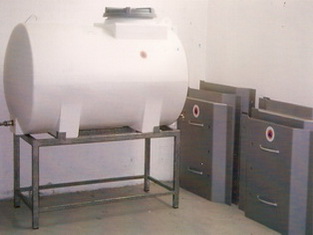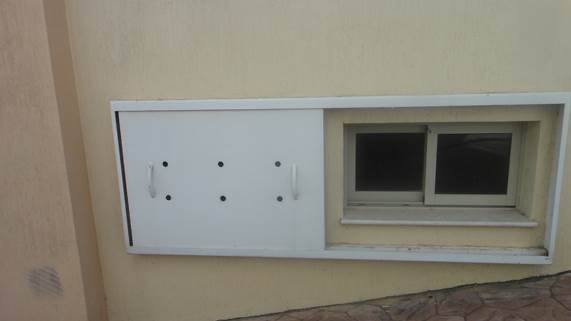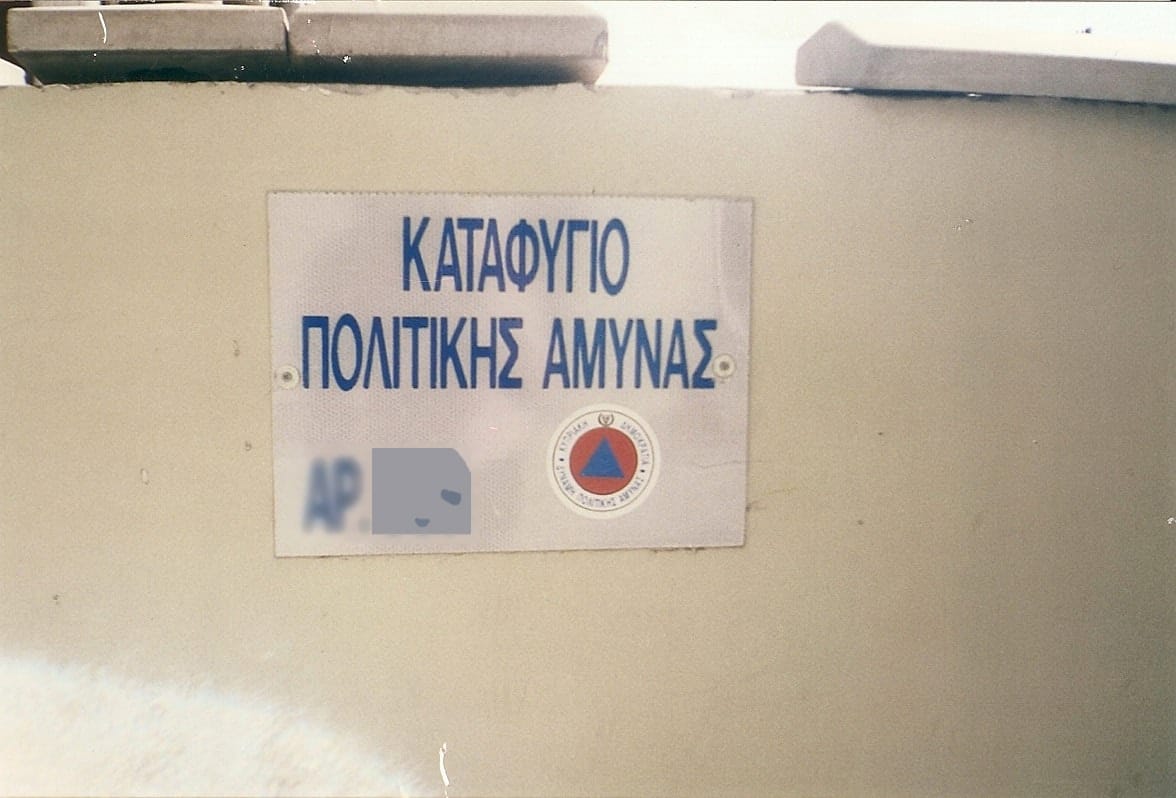Public urged to prepare for emergencies by downloading information and finding closest shelter
Amid a continuous flow of news reports on hurricanes, floods, earthquakes, wildfires and even war, it is only natural for people to wonder what they can do to protect themselves in an emergency.
“The best practice is prevention and information,” Civil Defence spokesman Panayiotis Liasides said.
“People are worried, and we are informing them about all dangers. It is October and rain is coming, possibly floods. We also have measures one can take in the case of earthquakes and other natural disasters, as well as armed conflicts,” he said.
In the case of natural disasters there is detailed material available in online flyers at https://www.moi.gov.cy/moi/cd/cd.nsf/home_en/home_en?openform and https://besafenet.net/, Liasides told the Cyprus Mail.
Liasides explained that the air raid shelters scattered around the island are only to be used to take cover from an armed conflict.
In case of an earthquake, people should head to an open area and if there is a flood they should never seek shelter in a basement, while for a tornado they should move to a central area in the house away from windows.
Referring to the air raid shelters, Liasides said there are 2,200 Civil Defence shelters at the moment, which can cover 30 per cent of the population.

The creation of shelters, most of which are in residential areas, began in 1999.
“The aim is to cover 70 per cent of the population, so we can accommodate all those who will need shelters, as the others will be working in essential services, such as the army, police, civil defence, fire department, hospitals, electricity supply, communications etc.”
“The shelters have never been used,” Liasides said.
Civil Defence volunteers and permanent staff carry out maintenance checks on the shelters once a year.
“Some have water and toilets. If they don’t, we will provide water and chemical toilets when necessary. They are for a short stay,” Liasides said.
He added people will be alerted of an attack by air raid sirens.
“They will have to seek shelter and place their hands over the back of their neck to protect their head,” he said.

Increasing the number of shelters entails a series of steps, from taking the political decision to finding suitable space.
“It would be good for the people to find a safe place, which may meet their needs and they will not have to head to a shelter,” Liasides said.
Civil Defence is in contact with the church to obtain a list of churches with large enough basements to be used as shelters.
As the worst thing to do in a crisis is panic, one can take measures today by finding out their closest shelter by calling Civil Defence on 22403450 and 22403452, available around the clock. All they will have to do is provide their postcode.
Should the line be redirected to an answering machine, the caller is requested to leave their phone number so the officers on duty can call back.
It is frustrating that the location of shelters is not available online. This is because it is considered sensitive information.
People will know that they have to make their way to their closest shelter when the sirens wail to alert them. When the emergency is over, a continuous sound will be heard from the sirens so people can go home.

In the event of a crisis, people heading to shelters should remain calm and take a bottle of water and a snack, as well as prescribed medication and baby formula where applicable. If they are to stay in the shelter for longer than a few hours, Civil Defence will provide them with water and food.
The shelters are for everyone on the island at the time of a crisis, whether Cypriot or foreign, Liasides told the Cyprus Mail.
According to the Civil Defence website, volunteering is the most effective form of organising society for protection against disasters. With its volunteers, Civil Defence supports other essential services and is ready to assist in cases of natural or man-made disasters. Volunteers receive training in first aid, search and rescue, communications, fire and floods, evacuation plans and support.
Dos and don’ts
Earthquake: don’t run outdoors; stay away from large objects and windows; stay inside until shaking stops; check if somebody requires special assistance; stay far from buildings, pillars, trees, bridges etc.
Flood: move immediately to higher ground, rooftops, trees etc; avoid canyons, canals, underpasses etc.; follow instructions, especially if you are a tourist in the country; avoid moving water; if you find yourself in the water move at an angle to the flow in a shoreward direction; turn off electricity, water and gas as instructed; if you have time, board up the front door and the windows.
Fire: monitor local radio stations; be prepared to evacuate at any time; remove all outside furniture; close all doors in your home and shut off gas valves and pilot lights; remove curtains and awnings; keep lights on to aid visibility in case smoke fills the house; if available, turn sprinklers on to wet the roof.
Tsunami: get as far away as possible from the area; move to higher ground; climb a tree; stay where you are if you are outside the danger zone unless instructed by the authorities to move.
Exchange of fire: lie on the floor; refrain from looking out of windows; move to the room furthest from the fire; stay off the road; at night turn off all lights.
You can test your knowledge on various disasters by taking the BeSafeNet knowledge test at https://olympiad.besafenet.net/knowledge-tests.







Click here to change your cookie preferences